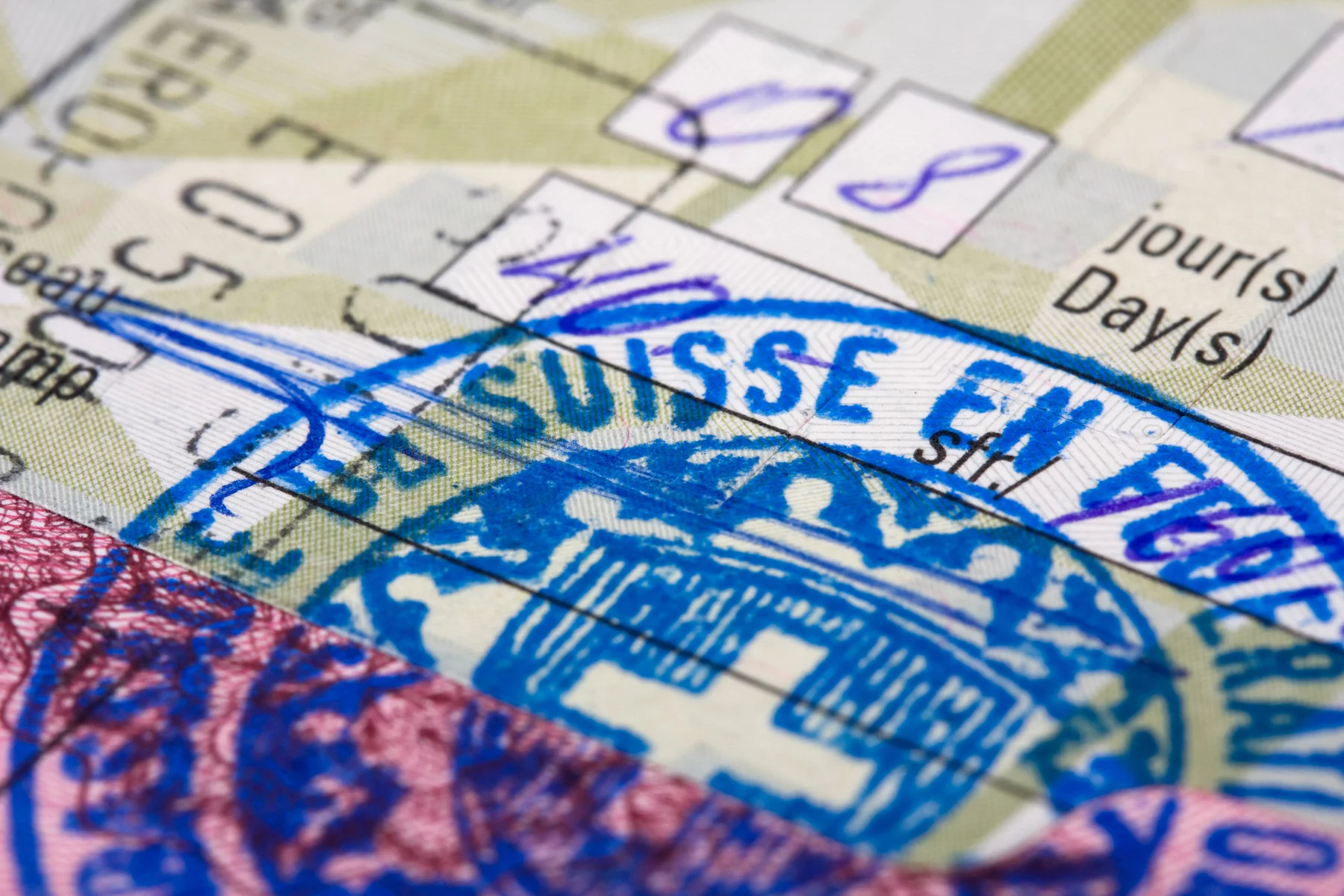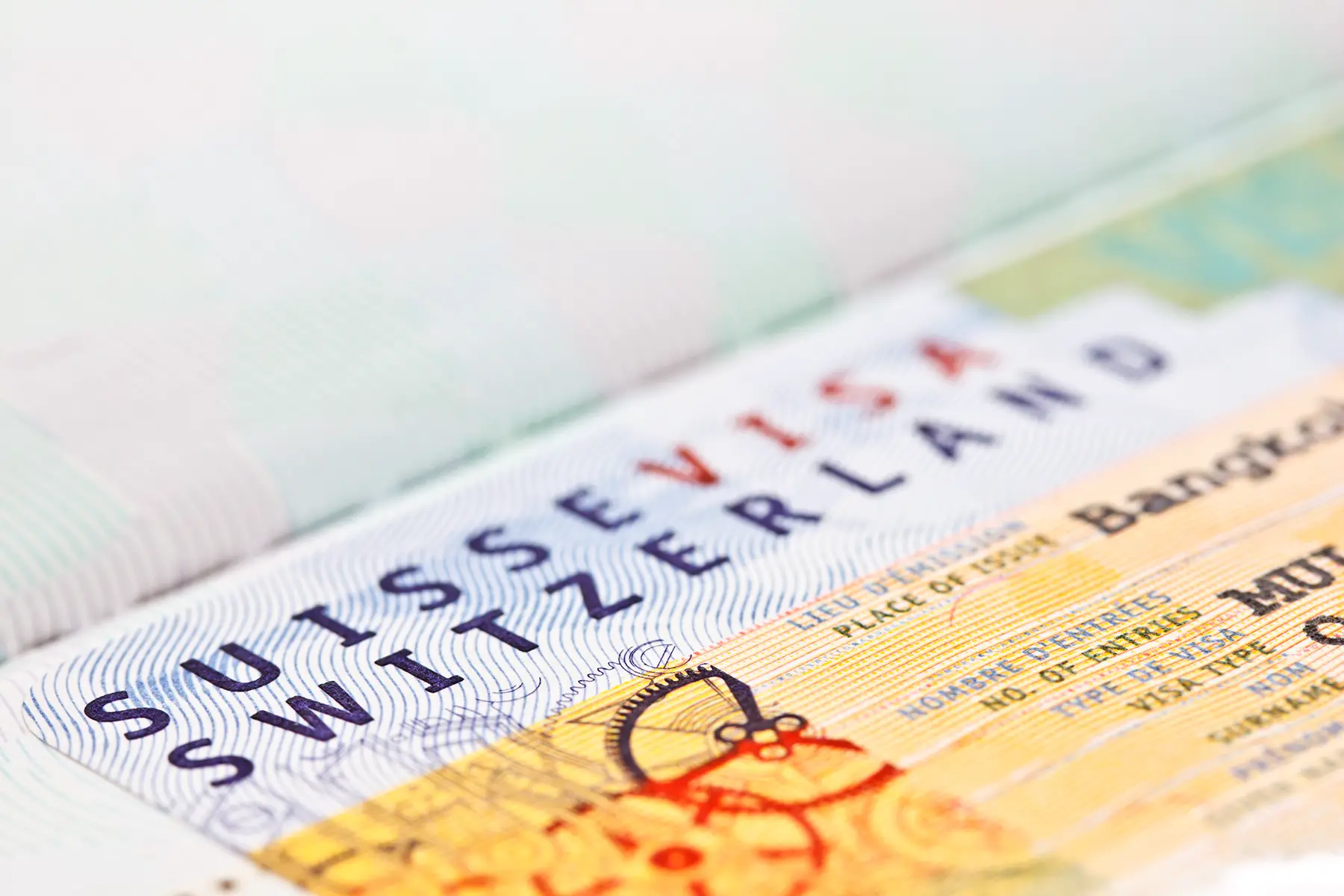Finding work in Switzerland as an international can be exciting, especially since many roles in finance, IT, and pharmaceuticals use English as the working language. While speaking German, French, or Italian can broaden your options, having relevant qualifications and work experience is often enough to land a great job—particularly in industries with skills shortages. Plus, many international companies value diverse backgrounds and multilingual skills.
Keep reading to learn all about:
- The job market in Switzerland
- How to find jobs in Switzerland
- Assistance looking for employment in Switzerland: Regional Employment Centers (RAV)
- How do you apply for a job in Switzerland?
- What are the requirements to find work in Switzerland?
- Financial support while looking for a job in Switzerland
- Starting your job in Switzerland
- Useful resources
Resume.io
Trying to land the job that will take you on your next big adventure? Make sure your application is top of the pile with Resume.io's online resume builder. They provide resume templates, cover letter help, and more, making job applications effortless. Make it to the next round with Resume.io.
The job market in Switzerland
As of early 2025, Switzerland’s job market presents a mixed outlook. While the country’s unemployment rate was relatively low at the end of 2024 at only 4.5%, Switzerland’s Centre for Business Cycle Research (KOF) in Zurich shows a declining job market for 2025, indicating potential challenges ahead.
Youth unemployment is also a concern in Switzerland, with rates higher than the overall unemployment average.

Despite this, certain sectors, particularly technology, continue to thrive. There’s a high demand for cybersecurity, artificial intelligence, and cloud engineering professionals, with companies offering competitive salaries and benefits to attract top talent.
However, job seekers in Switzerland should prepare for competition, especially in these high-demand fields. Proficiency in local languages, relevant experience, and specialized skills can provide a significant advantage.
What jobs are in demand in Switzerland?
Switzerland’s main industries include:
- Finance and banking
- Pharmaceuticals and biotechnology
- Precision engineering and watchmaking
- Machinery and industrial equipment
- Information Technology and software development
- Tourism and hospitality
- Food and beverage
Skills shortages have been reported in a number of sectors including:
- Healthcare (doctors, nurses, caregivers)
- Engineering (mechanical, electrical, civil)
- Information Technology (software developers, cybersecurity experts)
- Construction (skilled labor, project managers)
- Hospitality and tourism (chefs, hotel staff)
- Finance and insurance (risk analysts, actuaries)
- Manufacturing (technicians, machine operators)
The biggest Swiss companies are:
- Nestlé
- Roche
- Novartis
- UBS
- Glencore
- ABB
- Zurich Insurance Group
In addition to these, multinational companies with a strong presence in Switzerland include Google, Microsoft, IBM, Apple, and Meta.
Job vacancies for foreigners in Switzerland
Competition for Swiss jobs is fierce, especially for those coming from outside the EU or EFTA (European Free Trade Association). There are fewer opportunities available to them than to Swiss citizens as the government places limits on the number of jobs available in Switzerland for foreigners.

Since 2017, the Swiss government has restricted the number of non-EU/EFTA foreign workers in the country. The quotas undergo a review each year, but there are 8,500 for 2025. Separate from this quota, there are 3,500 work permits set aside just for British nationals.
However, finding a job in Switzerland is possible, including a small selection of jobs in Switzerland for English speakers, especially in sectors where there are high shortages of skilled workers. In multicultural Switzerland, however, language is often key to finding work in Switzerland.
How to find jobs in Switzerland
Expatica jobs in Switzerland
On Expatica’s listing of jobs in Switzerland, you’ll find a constantly updated list of Swiss jobs for foreigners and English speakers in different sectors across the country.
EURES
If you’re from the EU or EEA you can search for a job in Switzerland through EURES, the European Job Mobility Portal. This is a European Commission site aids the freedom of movement within the European Economic Area. As well as looking for work, you can upload your CV, which prospective employers can view, as well as get advice on the legal and administrative issues involved in working in Switzerland.
Public job sites
Public sector jobs in Switzerland are mainly advertised on cantonal and federal job portals, as well as on general job websites.

Here are a few of the main ones:
- Federal government jobs – The Swiss federal government posts vacancies on www.stelle.admin.ch. This site lists positions across government departments, including administration, research, and diplomacy.
- Cantonal and municipal jobs – Each canton and major city has its own job portal for local government positions. You can find these by searching “[canton name] jobs” or visiting the official website of your canton or city.
- Public institutions and universities – Jobs in education, healthcare, and public research institutions (e.g., ETH Zurich, University of Geneva) are listed on their respective websites.
- Swiss Post, SBB (Swiss Railways), and other public enterprises – These semi-public entities have their own career pages where you can apply directly.
Job websites in Switzerland
There are also various general job websites, including the following:
Plus a few specialist job sites, like:
- Alpha – for executives
- Euro Science Jobs – research and post-doc jobs
- Robert Walters – accountancy and finance
- SwissLinx – executive, technology and finance
- Diversity – pharmaceutical
- Techno Jobs – IT and technical jobs
- Seasonworkers – ski jobs
- Swissdev Jobs – IT/ software developers
English-speaking jobs
If you’re in search of an English-speaking job, there are a few dedicated sites that you can check to find the latest job openings:
Recruitment agencies
It’s easy to register at any of the many private employment agencies in Switzerland. Private recruitment agencies are called Arbeitsvermittlung or agence de placement in Switzerland. Manpower and Adecco are two of the main agencies but you can find many more doing an internet search.
You can also check out Expatica’s recruitment agency listings in our directory.
Foreign language teaching
To teach English in a school in Switzerland, you’ll generally need to have a BA degree and a TEFL certification. Some positions, especially in public schools, may also require a teaching qualification (e.g., PGCE, CELTA, or a Swiss teaching diploma) and proficiency in one of the national languages (German, French, or Italian, depending on the region).

Most teaching contracts begin in the fall and end in the following summer, like the Swiss academic year. Some teachers also choose to teach at English language camps in the summer or take on private lessons, which are in high demand.
The main cities for teaching jobs are Zurich, Geneva, Basel, Bern, and Lausanne. There are more than 100 English language schools across the country, including private language institutes, international schools, and business English providers.
You can also look for jobs with the British Council and on TEFL-associated websites such as:
In Switzerland, networking and contacting language schools directly can also be effective, as many positions are filled through word of mouth.
Embassies and foreign organizations
Check out opportunities at the embassies and consulates in Bern, Geneva, and Zurich. Most will expect a high standard of both spoken and written German, French, or Italian, depending on the region. Some roles, particularly in administrative or diplomatic positions, may also require Swiss national work authorization.
The British Embassy in Bern advertises jobs from time to time. As well as working on foreign policy issues, the embassy offers various services for British nationals in Switzerland, including assistance with emergency travel documentation, consular support, and visa inquiries. Many embassies also hire locally for roles in administration, communications, trade relations, and security.
Newspapers
The main Swiss newspapers with online job search tools include Handelsblatt and Neue Zürcher Zeitung, while you can also find printed job ads in Corriere del Ticino, Finanz und Wirtschaft, Le Temps (Geneva), HandelsZeitung, 24 Heures (Vaud) and Tribune de Genève (Geneva), sometimes on a specific day a week.
Make the first move: speculative applications
There’s no harm in firing off some speculative applications to companies you’d particularly like to work for. Try looking on the company websites to see if they have a vacancies page or contact details where you can send your CV.
Many jobs in Switzerland go to people contacting the company directly rather than through advertisements in the press or online. So check out Swiss firms to see the latest vacancies or find out who to approach to make a speculative application.

You’ll find up-to-date information on many Swiss companies on the country’s Chamber of Commerce website where you can browse by canton.
Self-employment and freelancing in Switzerland
Another option is to set out on your own and either work as a freelancer in Switzerland or starting up a Swiss business. You can do this as long as you have the right to work in Switzerland. (This includes all EU/EFTA citizens and third-country nationals with the relevant visa.)
Switzerland offers strong support for entrepreneurs through various funding programs and investment initiatives. The Swiss Entrepreneurs Fund provides CHF 250 million to high-growth startups and SMEs, while the Foundation for Technological Innovation (FIT) offers loans of CHF 100,000 to CHF 500,000 for tech-driven businesses.
Programs like Venture Kick grant up to CHF 130,000 in pre-seed funding, and the BRIDGE program supports innovative projects.
Traineeships, internships, and volunteering in Switzerland
The EU offers traineeships for university graduates via the European Commission Traineeships Office (Bureau de Stages), otherwise, you can get internships or summer placements through AIESEC (for students and recent graduates from the UK) or IAESTE (for students in science, engineering and applied arts). You can also find internships at Globalplacement and Intern Abroad.
For those aged between 17 and 30, the European Voluntary Service (EVS) runs voluntary programs where you work abroad for up to 12 months in exchange for board, food, insurance, and a small allowance. Concordia is another organization for volunteer opportunities.
Assistance looking for employment in Switzerland: Regional Employment Centers (RAV)
Switzerland’s Regional Employment Centers (RAV) are the main offices for job seekers and unemployment benefits. Each canton has its own RAV, offering job search support, career counseling, training programs, and financial assistance for those who qualify.
If you’re unemployed, registering with your local RAV is essential to access these services. The national job portal is a good starting point to find your nearest office and available job listings.

For those looking to up-skill or switch careers, cantonal vocational training offices provide retraining programs, apprenticeships, and skills development courses. These offices help match workers with labor market demands, ensuring better job opportunities. To find specific training options, check your canton’s official website or ask at your local RAV.
How do you apply for a job in Switzerland?
When you have found a job, you’ll need to know how to put together a Swiss-style CV and cover letter to make sure your application gets the consideration it deserves. Some jobs may go the alternative route of application and personal statement, but the general requirements in terms of content remain the same.
Interviews with Swiss employers are broadly similar to those in countries such as the US and the UK, especially with big multinational firms. With some larger companies, the application process may involve psychometric testing and assessment. This usually occurs at the interview stage.
Preparation for Swiss job interviews is similar to elsewhere. Dress smartly, research the company in advance so that you are prepared and have some good questions.
If the company offers you the job, you will need to provide 2–3 good job or character references from previous employers, managers, or college professors.
For assistance putting together a CV that will impress Swiss employers, try out resume.io.
What are the requirements to find work in Switzerland?
1. Do you need a Swiss work visa?
Foreigners who want to work in Switzerland need a work permit, with different types available based on nationality and job type. EU/EFTA citizens benefit from more flexible rules under the Agreement on the Free Movement of Persons, while non-EU/EFTA nationals face stricter quotas and requirements.

Types of Swiss work permits & visas:
- L Permit (Short-Term Work Permit) – For contracts lasting 3 to 12 months; usually tied to a specific employer.
- B Permit (Residence & Work Permit) – For long-term employment; granted for 1 year, renewable annually. Quotas apply for non-EU/EFTA nationals.
- C Permit (Permanent Residence) – Granted after 5–10 years of residence, allowing unrestricted employment.
- G Permit (Cross-Border Commuter Permit) – For those living in neighboring countries (France, Germany, Italy, Austria) but working in Switzerland.
- EU/EFTA Nationals – Can work in Switzerland without a permit for up to 3 months; for longer stays, they must register and obtain an L or B permit, depending on the contract.
2. What are the language requirements to work in Switzerland?
Speaking the local language (German, French, or Italian, depending on the region) is generally very important for finding a job in Switzerland. Many employers require proficiency in the language spoken in their canton, especially for customer-facing or administrative roles.
There are jobs for non-local language speakers, but these are mostly in international companies, multinational organizations, or specific industries where English is the main working language. These include finance and banking, technology and IT, and international organizations or NGOs.
3. Can you transfer your qualifications to work in Switzerland?
If you want to work in a regulated profession – health, teaching, technology, law, and social work – in Switzerland, you’ll need to have your foreign qualifications recognized, even if you’re from the EU or EEA.
If your occupation isn’t regulated you may still wish to get a level certificate that provides Swiss employers with information about how your foreign qualification relates to the Swiss higher education system.

You can find out more information and do this process through the State Secretariat for Education, Research and Innovation (SERI).
Academic qualifications (not for regulated professions) from some countries are recognized via the Bologna Process. University qualifications (bachelor’s degrees and above but not those related to regulated professions) can also be recognized for work purposes through ENIC-NARIC.
4. You will need a tax and social security number
Since 2008, all Swiss residents have been issued with a 13-digit social security number (AHV number). The number is used for all social insurance purposed and you will need it, for example, to claim social security.
You should receive your AHV number shortly after starting work in Switzerland.
Financial support while looking for a job in Switzerland
Swiss residents can claim unemployment insurance after five days of unemployment, however, you must have been working and paying contributions for at least 12 months in the last two years to be eligible.
This means that anyone who moves to Switzerland will need to have either a job, another form of regular income, or savings to support themselves.
Switzerland has a good range of continuous vocational training as well as career counseling available. Find out more on the government website or enquire with your local canton.
Starting your job in Switzerland
Once you have found and started a job in Switzerland, you will probably initially be on a probation period. This is usually between 1–3 months, depending on your employment contract.
You will need to make sure that you are enrolled for a social security scheme that will entitle you to a Swiss pension among other benefits. Your employer should also enroll you in insurance schemes for work accidents and employers’ liability.
Some employers may also offer you the chance to opt-in on a company pension to top up your state pension benefit.
Swiss workers get a minimum of four weeks of holiday a year, plus public holidays. For workers aged under 20, this extends to five weeks a year.

Most employees will receive a written employment contract. This contract details employment rights, including conditions of termination of contract. The notice period for either party is in the contract. If not, the Code of Obligations regulates the minimum period which stands at:
- Seven calendar days during any probation or trial period
- One month during the first year of employment
- Two months between years 2–9 of employment
- Three months for 10 years and above
The maximum number of working hours per week is 45 hours for industrial workers and 50 hours for all other employees.










